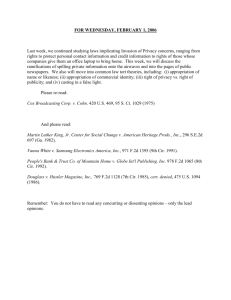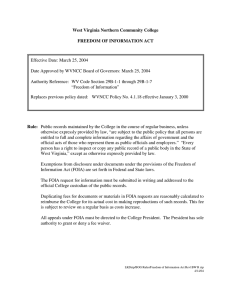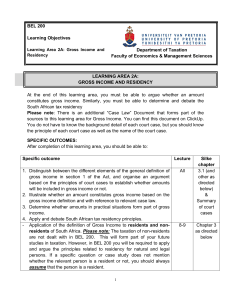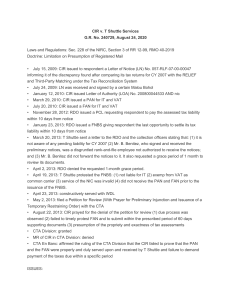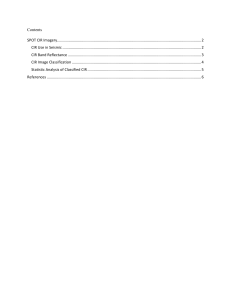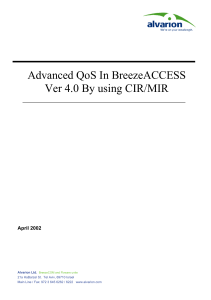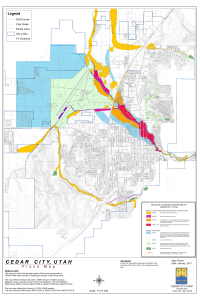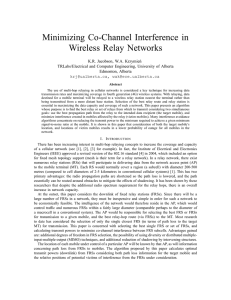Administrative Law Spring 2011
advertisement
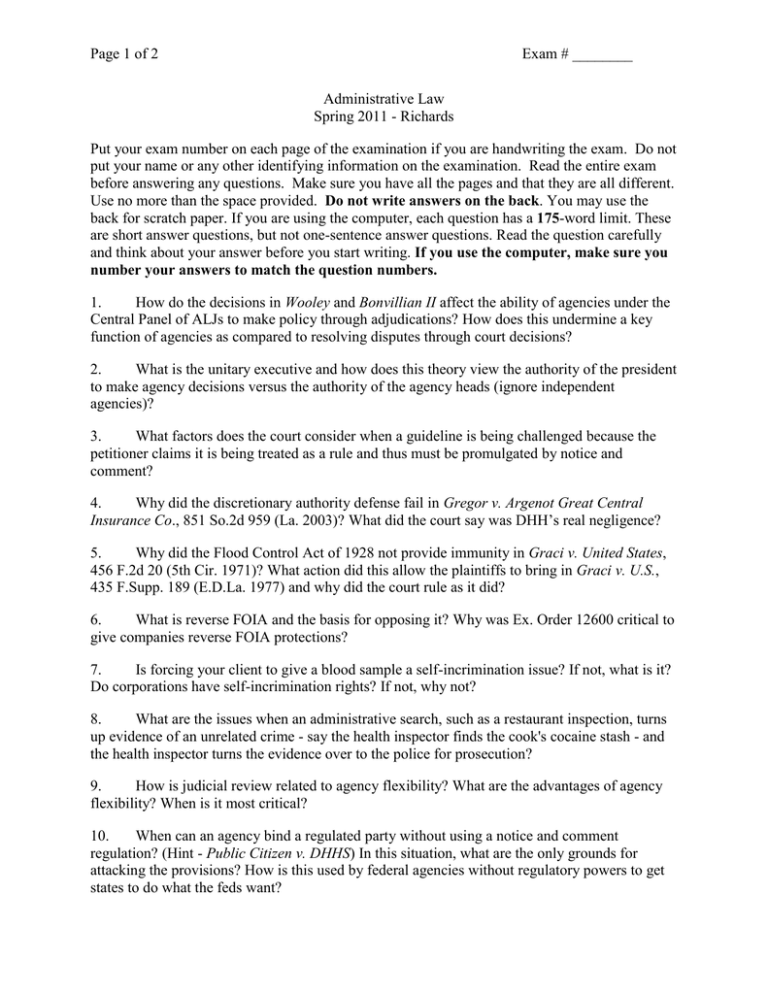
Page 1 of 2 Exam # ________ Administrative Law Spring 2011 - Richards Put your exam number on each page of the examination if you are handwriting the exam. Do not put your name or any other identifying information on the examination. Read the entire exam before answering any questions. Make sure you have all the pages and that they are all different. Use no more than the space provided. Do not write answers on the back. You may use the back for scratch paper. If you are using the computer, each question has a 175-word limit. These are short answer questions, but not one-sentence answer questions. Read the question carefully and think about your answer before you start writing. If you use the computer, make sure you number your answers to match the question numbers. 1. How do the decisions in Wooley and Bonvillian II affect the ability of agencies under the Central Panel of ALJs to make policy through adjudications? How does this undermine a key function of agencies as compared to resolving disputes through court decisions? 2. What is the unitary executive and how does this theory view the authority of the president to make agency decisions versus the authority of the agency heads (ignore independent agencies)? 3. What factors does the court consider when a guideline is being challenged because the petitioner claims it is being treated as a rule and thus must be promulgated by notice and comment? 4. Why did the discretionary authority defense fail in Gregor v. Argenot Great Central Insurance Co., 851 So.2d 959 (La. 2003)? What did the court say was DHH’s real negligence? 5. Why did the Flood Control Act of 1928 not provide immunity in Graci v. United States, 456 F.2d 20 (5th Cir. 1971)? What action did this allow the plaintiffs to bring in Graci v. U.S., 435 F.Supp. 189 (E.D.La. 1977) and why did the court rule as it did? 6. What is reverse FOIA and the basis for opposing it? Why was Ex. Order 12600 critical to give companies reverse FOIA protections? 7. Is forcing your client to give a blood sample a self-incrimination issue? If not, what is it? Do corporations have self-incrimination rights? If not, why not? 8. What are the issues when an administrative search, such as a restaurant inspection, turns up evidence of an unrelated crime - say the health inspector finds the cook's cocaine stash - and the health inspector turns the evidence over to the police for prosecution? 9. How is judicial review related to agency flexibility? What are the advantages of agency flexibility? When is it most critical? 10. When can an agency bind a regulated party without using a notice and comment regulation? (Hint - Public Citizen v. DHHS) In this situation, what are the only grounds for attacking the provisions? How is this used by federal agencies without regulatory powers to get states to do what the feds want? Page 2 of 2 Exam # ________ 11. How is Motor Vehicles Manufacturers Assoc. v. State Farm the logical result of Overton Park? 12. How does zone of interests limit standing? How was the zone of interest different between Hazardous Waste Treatment Council v. Thomas, 885 F.2d 918 (D.C. Cir. 1989) and Honeywell International, Inc. v. EPA, 374 F.3d 1363 (D.C. Cir. 2004)? 13. What are alternative remedies to due process claims? Why are these alternatives sometimes better for your client? What does the United States Supreme Court tell us is the remedy if your client believes she has been wrongly put on the "perverts R us" WWW site? 14. Discuss the problem of agencies taking official notice of information, how this can influence the defendant's due process rights, and how the record is the key to resolving these problems. 15. What are the exclusive powers of the House of Representatives? What are the exclusive powers of the Senate?

